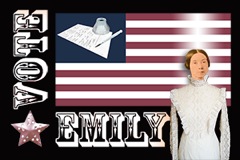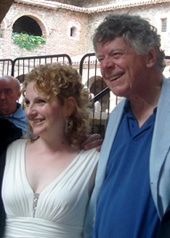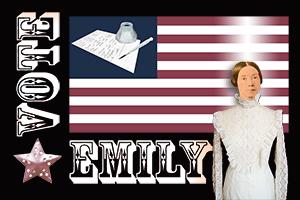

Composer Gordon Getty
As Getty remarks in an introduction to a recording of his music:
The object of the cycle is to tell Emily’s story in her own words, at a length appropriate for a complete single concert. Since many of her 1,775-odd poems are autobiographical, or written in the first person, there was no shortage of suitable texts. The problem was to select among them [he ultimately set 32]. What one wanted was quality and aptness, the best poems that best told the story. The most salient features of Emily’s life were taken to be the white election, with its theme of union in death, and her unsuspected poetic genius.
Listen to the Music
My brain began to laugh
Although Getty (who is on the Board of SFCV and was a co-founder) composed considerable music in his youth, his writing had undergone an 18-year hiatus until 1980. But then he was hit with the Dickinsonian muse, as he described in a 2005 interview:
I was in Paris at an English-language bookstore. I picked up a volume of Dickinson 's poetry. I came back to my hotel, read 2,000 of her poems and immediately began composing in my head. I wrote down the melodies even before I got to a piano.
Soprano Lisa Delan, who impressed Sequenza 21 critic Phil Muse with her “impressive range of interpretive responses,” will be accompanied by the Grammy Award–winning pianist (and conductor) Mikhail Pletnev. Grammophone magazine’s characterization of her style as “refreshingly unpretentious” augurs an excellent fit for the challenges put before her by the composer.
Whether you wear white or not is up to you, should you elect to attend.

